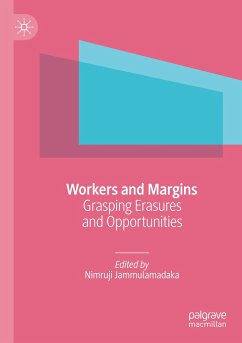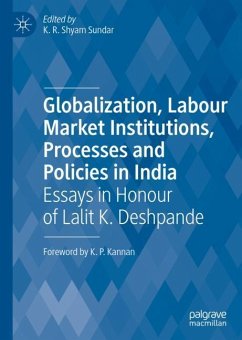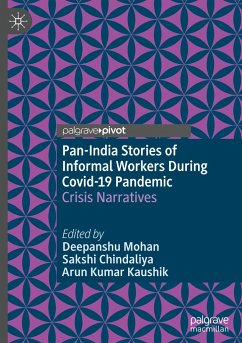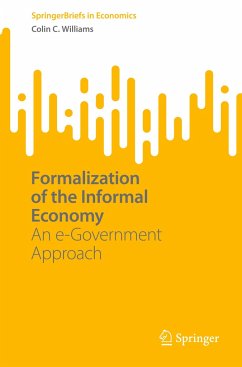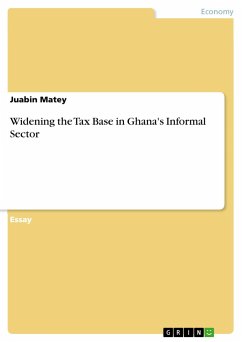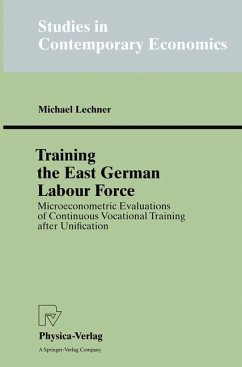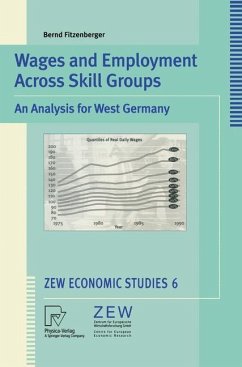
Workers and Margins
Grasping Erasures and Opportunities
Herausgegeben: Jammulamadaka, Nimruji

PAYBACK Punkte
38 °P sammeln!
This book focuses on informal workers and margins and seeks to advance the discourse on the concepts of 'work', 'workers' and 'margins'. By largely focusing on informal, non-formal and non-industrial sector workers where unionism, collective bargaining, and labour laws have little influence, the book promotes approaches to understanding alternate worker politics and organising practices. As such, it presents an alternative to conventional approaches to understanding workers in management and organisation studies.The book draws attention to the mechanisms of erasure implicit in disciplinary and...
This book focuses on informal workers and margins and seeks to advance the discourse on the concepts of 'work', 'workers' and 'margins'. By largely focusing on informal, non-formal and non-industrial sector workers where unionism, collective bargaining, and labour laws have little influence, the book promotes approaches to understanding alternate worker politics and organising practices. As such, it presents an alternative to conventional approaches to understanding workers in management and organisation studies.
The book draws attention to the mechanisms of erasure implicit in disciplinary and governmental practices that allow the worker to remain invisible. By making the worker visible, it seeks to go beyond economistic and psychological approaches to work(ing) to understand the worker as a human being, with all the complexity, vulnerability and agency that status implies. Further, it seeks to go beyond worker victimhood to gather narratives of workers' worlds and thepossibility of alternate worlds.
The contributing authors bring together diverse perspectives from fields including industrial relations, environment, displacement, collective action, livelihoods, rural development, MSMEs, organisational behaviour and entrepreneurship to present a textured and multidimensional view of workers and their worlds.
The book draws attention to the mechanisms of erasure implicit in disciplinary and governmental practices that allow the worker to remain invisible. By making the worker visible, it seeks to go beyond economistic and psychological approaches to work(ing) to understand the worker as a human being, with all the complexity, vulnerability and agency that status implies. Further, it seeks to go beyond worker victimhood to gather narratives of workers' worlds and thepossibility of alternate worlds.
The contributing authors bring together diverse perspectives from fields including industrial relations, environment, displacement, collective action, livelihoods, rural development, MSMEs, organisational behaviour and entrepreneurship to present a textured and multidimensional view of workers and their worlds.





